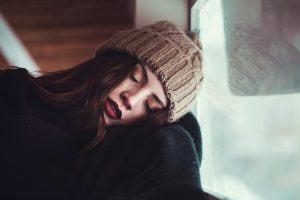Can Winter Affect My Sleep Apnea?

In this blog, sleep specialist Dr. Marc Levin at eos dental sleep explains how winter can affect your sleep apnea:
How can the coldness of winter affect your sleep apnea?
Winter weather can worsen your sleep apnea symptoms due to the following:
- Weather conditions such as high atmospheric pressure
- Increased levels of carbon monoxide
- More frequent upper-airway problems, such as colds and congestion
- Wood burning to heat homes leading to irritated airways
- Allergens spread by forced air heating
- Dry air leading to irritated airways
What are the symptoms of this sleep disorder?
The sleep disorder sleep apnea can cause one or more of the following symptoms:
- Pauses in breathing witnessed by another person
- Loud, chronic snoring
- Excessive daytime sleepiness despite spending enough time in bed
- Snorting or gasping sounds during sleep
- Waking up with a dry mouth or sore throat
- Morning headaches
- Difficulty concentrating or remembering
- Irritability
- Depression
Sleep apnea can also increase your risk of developing type 2 diabetes and heart disease.
How is sleep apnea treated?
The following are the most common ways to treat sleep apnea:
CPAP Machine Treatment
This machine delivers a stream of air through tubing and a mask you wear on your face.
It can be effective, but many people don’t use it every night or abandon its use entirely because it can be uncomfortable.
Oral Appliance Therapy
Oral devices are often worn by patients who have trouble using a CPAP machine. They’re custom-made to fit each patient and address his or her needs. Your doctor and a lab create a mold that fits the unique shape of your mouth and teeth.
Similar to a mouth guard or orthodontic retainer, oral appliances are worn only at night. Oral appliances are very effective in treating sleep apnea and snoring because they slightly position the tongue or jaw forward to help the airway stay open. Patients usually find it comfortable and easy to use, transport, and clean.
If you snore or have other symptoms of sleep apnea, make an appointment today with eos dental sleep. Dr. Levin can help you find the best possible treatment, and if you’ve already been diagnosed with this sleep disorder and are looking for a CPAP alternative, we can provide you with a custom-made oral appliance.
